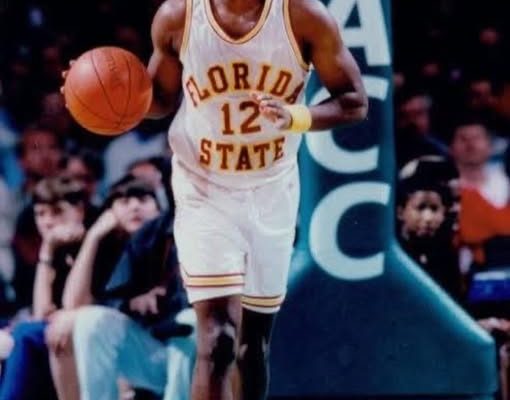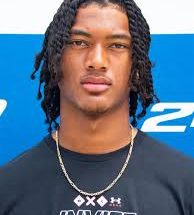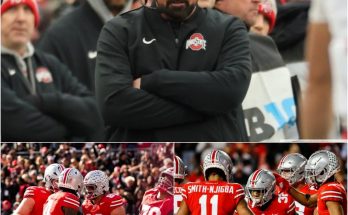In the sprawling, often transactional world of modern college athletics, where loyalty is a currency frequently devalued and legacies are sometimes forgotten in the rush toward the next big thing, there exists a rare and precious moment of pure, unadulterated symmetry. It is a moment that feels less like a scheduled ceremony and more like the closing of a perfect circle, a narrative so rich and resonant it seems scripted by a sentimental novelist. This Sunday, inside the Donald L. Tucker Center in Tallahassee, such a moment will unfold. Florida State University will permanently hang the jersey of Charlie Ward in its rafters, and the man himself will be standing on the opposing sideline, not as a returning hero, but as the first-year head coach of the Florida A&M Rattlers.
To understand the full weight of this occasion, one must first understand the mythos of Charlie Ward, a figure who transcends the typical boundaries of athletic achievement. For most of the country, Ward is the quarterback. He is the serene, dual-threat maestro who, in 1993, authored one of the most remarkable single seasons in college football history. He led the Seminole football team to its first-ever national championship, claiming the Heisman Trophy with a staggering margin of victory that still stands as a record. He was, for that magical year, the face of college sports, a player whose grace under pressure and unparalleled skill set made him a legend on the gridiron.
But in Tallahassee, and within the soul of Charlie Ward himself, there has always been another love, another arena where his competitive fire burned just as brightly. Basketball was not a side hobby; it was a parallel passion. For four years, he was also the starting point guard for the Seminoles, a tenacious defender and a savvy floor general under Coach Pat Kennedy. His basketball career was not merely a footnote to his football glory. He started 110 games, dished out 396 assists, and was the heart and soul of teams that danced in the NCAA Tournament. He was, in the truest sense, a college athlete, competing at the highest level in two major sports, a feat rendered nearly impossible by today’s specialized, year-round training regimens.
The retirement of his jersey number 17—or, more poetically, the banner with his name—is a long-overdue correction. It is Florida State’s formal acknowledgment that Ward’s legacy is not bifurcated, but a singular, magnificent whole. It affirms that his contributions on the hardwood were just as integral to the fabric of Seminole athletics as his Heisman moment in the Orange Bowl. He wasn’t just a football player who played basketball; he was Charlie Ward, the Seminole, who happened to excel at an unprecedented level in two domains. This act elevates him beyond the compartmentalized halls of fame and places him firmly in the pantheon of the university’s all-time greats, a category he arguably inhabits alone.
The symmetry of the moment is what elevates it from a simple honor to a profound life event. Ward will not be looking up at the rafters from the home bench, surrounded by familiar colors and the adulation of a crowd that sees him solely as one of their own. Instead, he will be on the visitor’s side, clad in the orange and green of Florida A&M, a university steeped in its own proud history and tradition. He is at the beginning of a new journey, tasked with the monumental challenge of rebuilding a Rattlers program. This juxtaposition is breathtaking: a man being immortalized in one building while simultaneously trying to forge a new identity for himself and his team in that very same space.
There is a beautiful tension in this scenario. For the Florida State fans in attendance, the game will be a celebration. It will be a chance to roar their approval for a man who gave them some of the most cherished memories in the university’s history. They will stand and applaud, their memories flickering with images of him threading a needle to a receiver or stealing a pass and leading a fast break. For Ward, the moment will undoubtedly be emotional, a culmination of a lifetime of dedication. But once the ceremony concludes and the ball is tipped, he must switch gears. The man being honored becomes the opponent. The legend becomes the competitor. He will be trying to diagram a play to beat the very program that is, in that same hour, cementing his eternal status.
This new chapter at Florida A&M is a testament to Ward’s character and his enduring love for the game. He didn’t need to coach. His legacy was secure, his place in history unquestioned. Yet, he has chosen to embrace the grind, to pour his knowledge and his calm, faith-driven leadership into a new generation of young men at an HBCU with a passionate fanbase. It is a role that seems tailor-made for him. If anyone can teach poise, it is the quarterback who never seemed rattled. If anyone can preach the virtues of multi-sport discipline and the holistic development of an athlete, it is Charlie Ward. His presence on the FAMU sideline is a beacon, a signal that the program is in hands that understand the deeper meaning of sport beyond wins and losses.
The ceremony on Sunday, therefore, is not an endpoint. It is a nexus—a point where past, present, and future converge. It honors the past, celebrating the unparalleled dual-sport career of a young man who defined an era of Seminole sports. It electrifies the present, creating a uniquely compelling and emotionally charged atmosphere for a season-opening game. And it blesses the future, as Ward carries the lessons learned from Bobby Bowden, Pat Kennedy, and his own incredible journey into his work molding the next wave of talent at Florida A&M.
When Charlie Ward looks up into the rafters and sees his name forever enshrined alongside other FSU greats, he will see a testament to where he has been. When he looks down at his FAMU team, huddled around him, he will see a representation of where he is going. In that moment, he embodies the complete cycle of an athletic life: the glory of achievement, the grace of recognition, and the selfless passing of the torch. It is a story of loyalty rewarded, of legacy honored in the very arena where it was forged, even as the honoree begins a new fight on the very same floor. This Sunday in Tallahassee, the circle will close, not with an ending, but with a beautiful and resonant new beginning.



